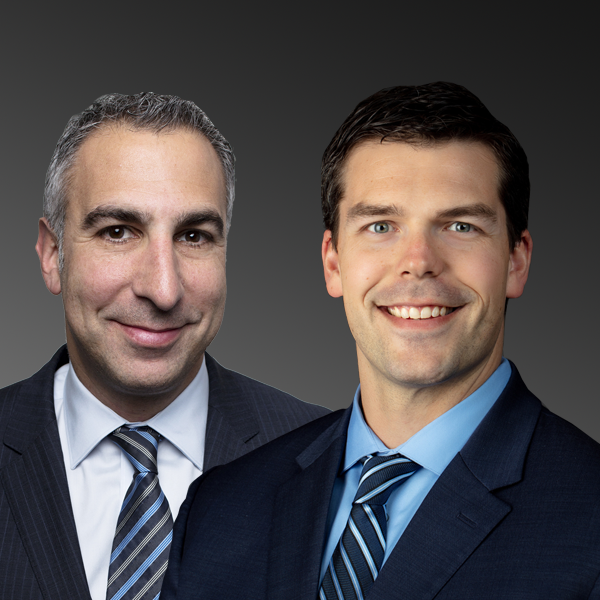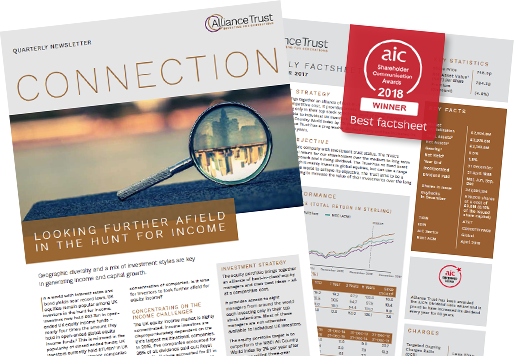FOMO versus Fundamentals
Take a punt on the latest hot stock or investment fad for fear of missing out and you could turn a quick profit – or a rapid loss. We look back at an extraordinary year in stock market history and its reinforcement of the fundamentals of investing.
FOMO or fundamentals – what drives your investment decisions? For a proportion of investors, emotion or more precisely ‘fear of missing out’ (a social media phenomenon that saw the acronym FOMO added to the Oxford English Dictionary in 2013) has trumped reason over the past year more often than might usually be the case.
Since the onset of the Covid-19 pandemic, volatility has pervaded financial markets with wild swings regularly being driven by the irrationality of its participants.
That, according to Greg Davies, a behavioural finance expert at Oxford Risk, is no coincidence given that we are living through times of great emotional, social and economic upheaval.
“Stresses in one part of your life don’t just stay in one part of your life, they bleed over into your emotional state more generally and your decision-making more generally. If we are stressed for whatever reason, it will tend to make our decision-making more emotionally led and we will tend to focus our decisions on shorter time horizons and be less able to take a long-term view.
“And, of course, when it comes to financial decision-making, those two things can both be harmful: too much emotion in your decision and too much of a short-term perspective on your decision-making can both have very detrimental effects on the way in which we manage our finances.”
MAD WORLD
The past year has been rife with examples of retail investor behaviour that is, quite frankly, a bit barmy.
For Richard Hunter, Head of Markets at the investment platform interactive investor (ii), it might not be so outlandish when considered against the backdrop of the quickest stock market crash and recovery in US history, negative oil price futures and a seemingly unlimited virtual money printing press.
“Even so, these events underline the importance of adequate individual research for investment decisions,” he said. “They also reiterate the comments of legendary economist John Maynard Keynes that ‘the markets can remain irrational longer than you can remain solvent’.”
Let’s look back at the most notable events:
April 2020: The wrong Zoom rockets
When millions of people started working from home, investors were quick to catch onto the investment potential of video conferencing app Zoom, which trades on the Nasdaq under the ticker symbol ZM. However, many bought the wrong company. They piled into Zoom Technologies, a tiny Chinese company that makes mobile phone parts and is a so-called penny stock traded over the counter, at the time under the ticker ZOOM.
“The accidental purchase pushed up the shares by 1,800% before the SEC [US Securities and Exchange Commission] stepped in,” said Tom Bailey, an Editor at ii.
May 2020: Bankrupt company buying
Covid-19 has decimated demand in certain markets, car rental being one. Hertz was forced to file for bankruptcy in late May, sending its shares to record lows. However, online day traders on WallStreetBets, an anarchic community of more than 4.5 million members of the social media site Reddit, decided to pile into the stock. The share price grew tenfold in a matter of weeks. While some investors sold at the top, others were left in a similar position to Hertz when the New York Stock Exchange delisted it in October – broke.
January 2021: WallStreetBets takes on Wall Street
Users of WallStreetBets were behind the dramatic rise of another stock, this time high street video games retailer GameStop. In a co-ordinated move orchestrated on social media, they took out call options on the stock in a move designed to trigger a ‘short squeeze’. Mohammad Kamal Syed, Head of Asset Management at private bank Coutts, said: “As well as the impact of social media networks that made the attack easy to organise, it wouldn’t have been possible without commission-free online trading platforms – notably, in this case, Robinhood. These made it quick and easy for investors to buy the stock, greasing the wheels of the whole process.” As the shares soared, traders who had bet against GameStop were forced to buy it to forestall even greater losses. Their scramble to buy added to the upward pressure, sending the shares “to the moon”, as Reddit users had wanted. They went from less than $20 in early January to a high of $483 in intraday trading by the end of the month. Volatility spread to the rest of the market, US politicians called for increased regulation and a dose of realism finally saw the stock come crashing down to $40 in February, leaving amateur investors with the sober realisation that in the absence of a solid investment case, it is not possible to defy gravity for long.
January 2021: Musk moves markets
Elon Musk, Chief Executive of electric-vehicle manufacturer Tesla and the world’s richest person, was tickled with his purchase of a wool helmet inspired by Marvin the Martian (the alien from Bugs Bunny) for his dog, so much so that he took to Twitter. His four-word tweet “I kinda love Etsy” sent shares in the handmade craft site up 10%. Later the same month, a two-word tweet had a more profound effect. In another case of mistaken identity “Use Signal” – his call for followers to use messenger app Signal over Facebook-owned WhatsApp – sent shares in Signal Advance, a tiny Texas-based biomedical company, soaring 5,100% over the course of three trading days. The buying frenzy seemed to continue even after the media highlighted the error. “It was as if investors knew it wasn’t the messenger app Signal but didn’t care,” said Bailey. A month later, shares in Signal Advance remain more than 200% higher.
February 2021: Celebrities endorse Dogecoin
In early February, celebrities like rapper Snoop Dog, Gene Simmons of rock band Kiss and Kevin Jonas of the Jonas Brothers fame took to Twitter to indicate their enthusiasm for cryptocurrency Dogecoin. Simmons dubbed himself “God of Dogecoin”. Snoop Dogg tweeted a photo of a Shiba Inu, the breed of dog representing the cryptocurrency, attached to a human body, tagging Tesla’s Musk. Musk then fired off a tweet to his 46 million followers promoting a one-minute video on Dogecoin breaking records with the words “Ð is for Ðogecoin! Instructional video.” From the start of 2021 to their celebrity-fuelled peak, the coins rose more than 1,500%, albeit they have never exceeded ten cents.
February 2021: Bitcoin breaks $50,000
That is far from the case for Bitcoin, the highest profile digital currency, which has been on a tear since last summer helped by companies like Tesla and MicroStrategy, a mobile software and cloud-based services provider, buying it. Its ascent has been far from linear, however. Back in 2011, Bitcoin reached parity with the dollar. When Covid-19 sent financial markets into freefall last February and March, the cryptocurrency lost one-quarter of its value in one day and half of its value from peak to trough. By July, it had recovered to its pre-pandemic level of more than $10,000. It took another big dip in January this year but in mid-February hit $50,000. “Particularly when stressed we grab towards familiar – the things we read about a lot,” said Davies. “Some of that will come out as people buying Bitcoin.” Where the cryptocurrency goes from here is anyone’s guess. “Bitcoin is an entirely speculative asset,” said Syed. “It has no intrinsic value and no real connection to the general economy. Other stores of value, like gold, have a well understood relationship to economic conditions, particularly inflation, based on a track record going back thousands of years.”
Gamification over gaming
Retail investing has surged amid the pandemic. On the one hand, this has manifested itself in demand for day trading as sports betters look for an alternative amid a dearth of live fixtures.
“Alarmingly, we have seen a correlation in the decline of sport betting versus a rise in new retail share accounts,” said Thomas Lowe, Head of Product at Winterflood Business Services.
Younger generations are looking for a piece of the action, too. “I got a bit scared myself when my 20-year-old daughter at uni in Durham messaged to ask me about ‘the Hargreaves Lansdown app you have’,” said Mark Atkinson, Head of Marketing and Investor Relations at Alliance Trust.
Hargreaves Lansdown is one of several investment platforms that has reported record numbers of new customers during the pandemic – many of them younger. Half of those who signed up to Hargreaves Lansdown in the second half of 2020 were aged between 30 and 54. On average, new clients are now aged 37 compared to 45 ten years ago. The average age of its entire client base has fallen to 47 from 54 over the same timeframe.
AJ Bell has also attracted a record number of new clients, up 27% in its latest financial year to end-September. The average age of its new customers is 39, down from 46 in 2019.
Lowe believes the trend is encouraging provided a clear line is drawn between ‘gamification’ and ‘gaming’. “Millennials have had more time and have begun to take ownership of their financial future – this is the beginning of a seismic generational shift and wealth transfer,” he said. “Some platforms have been accused of ‘gaming’ investing and not putting in place proper controls to safeguard inexperienced investors. But there are plenty of platforms trying to support long-term investing through gamification and nudges – powerful tools that we believe will be the real investing revolution for millennials.”
Apps like Moneybox and Wealthify use interactive games to illustrate the benefits of investing early in a diversified and low-cost manner. “This type of aid enables savers and investors to visualise the rewards of investing both time and money in their financial goals – and creates a wired emotional response to flex their saving muscles,” added Lowe.
“In improving the world’s financial literacy, the industry should not push for risky investment strategies like day trading. In the new frontier for retail investing the only game in town should be gamification for long-term success.”
Getting rich slow
While it might not seem as thrilling as taking on the hedge funds of Wall Street or riding the Bitcoin boom, investing in a range of quality companies with strong fundamentals and owning them for the long term remains the best way to build wealth. Making use of available tax breaks helps money to grow faster, too.
Equities have delivered a real return of 5.3% per year over the past 50 years, according to the 2020 Barclays Equity Gilt Study. Assuming investment charges of 0.8% and a net return of 4.5%, making the maximum annual pension contribution excluding tax relief of £32,000 could result in a fund worth £1 million in just 17 years, according to an analysis by AJ Bell. Saving £6,000 a year or £500 a month, and increasing this by 2% each year, would result in £1 million in 38 years.
On the same basis, someone who used their ISA allowance of £20,000 per year could be a millionaire in 27 years. The same achievement would take 31 years if saving £1,000 per month, increasing by 2% each year, or 42 years if saving £500 per month.
“People who make the most of the tax benefits of pensions and ISAs while harnessing the power of compound investment growth can build up serious savings wealth over their lifetimes,” said Tom Selby, a senior analyst at AJ Bell.
According to Hargreaves Lansdown, those under 30 are more likely to hold single company shares in their ISA and have been seeking growth in racier shares like technology companies as opposed to the supermarkets and pharmaceutical companies that the over 50s typically favour, but most assets across all age groups are in collective investment funds. The 579 ISA millionaires on the platform own a broad international mix of popular funds. Their average age is 71.
“While some people get into investment in the hope of getting rich quick, the vast majority of ISA millionaires have built a fortune through the far more reliable approach of getting rich slow,” said Sarah Coles, a Personal Finance Analyst at Hargreaves Lansdown.
“They don’t take enormous risks: they’ve just consistently invested as much as possible of their annual allowance in a diverse and balanced portfolio, every year, for decades.”
Secret sauce
Investment trusts appear to be the ‘secret sauce’ for ISA millionaire account holders on the ii platform. It boasts 731 ISA millionaires, again with an average age of 71. Investment trusts account for more than half (54%) of their ISA assets, ahead of single shares (36%), open-ended funds (7%) and exchange-traded funds (2%).
This stands to reason when you consider some of the unique features of investment trusts. Their closed-end nature is a big benefit over the longer term as it allows managers to run their portfolios through good and bad times without the need to sell investments to meet redemptions when investors lose their nerve.
Their ability to gear – to borrow money to invest alongside shareholders’ capital – is another boon. This can augment shorter-term losses but helps to supercharge returns over the medium to long term and helps to explain why investment trusts generally outperform sister open-ended funds over five years or more.
Moira O’Neill, Head of Personal Finance at ii, regards globally diversified trusts as “a good place to start”. Alliance Trust is the second most popular holding among the platform’s ISA millionaires, behind Scottish Mortgage, another global trust.
“ISA millionaire status will elude most of us, but it is inspiring to see how they got there – and we can all learn from the nation’s wealthiest,” she said. “The number one lesson is patience – even millionaires didn’t get there fast.”






